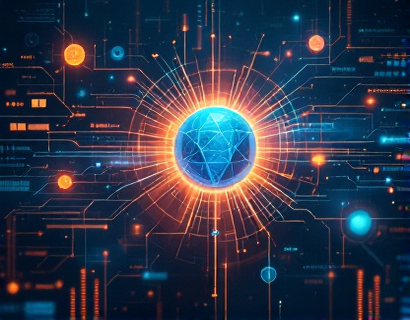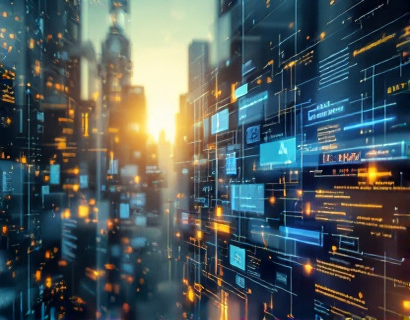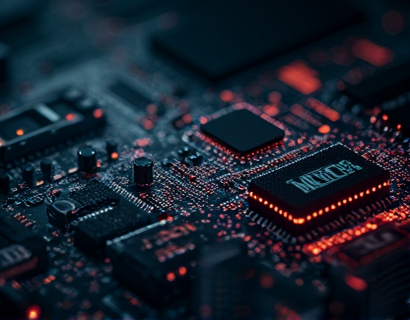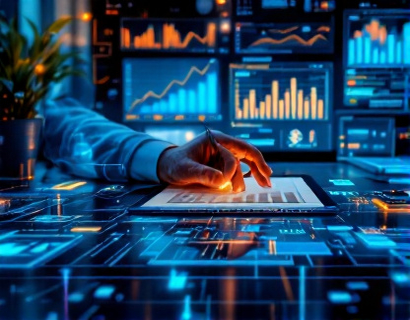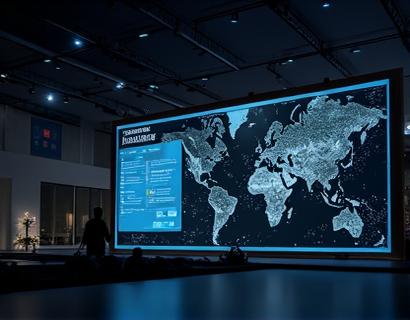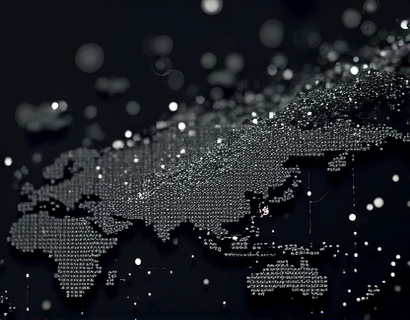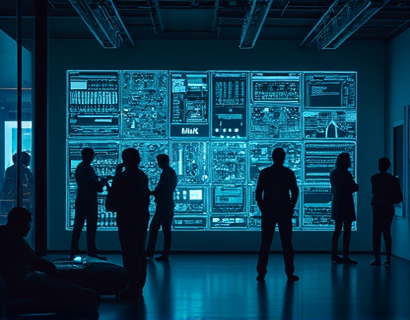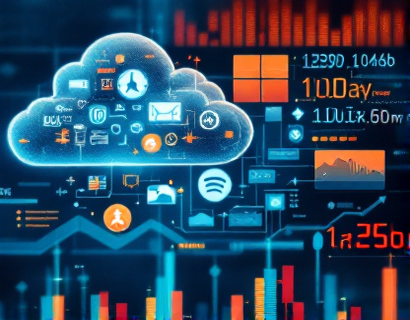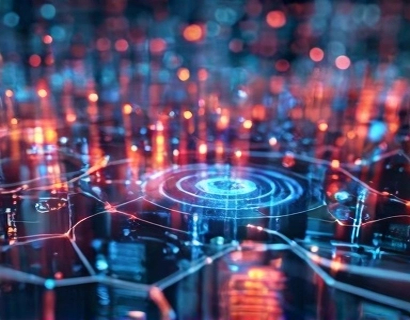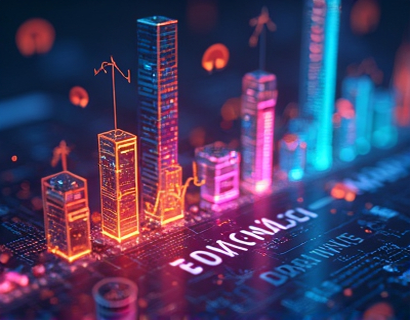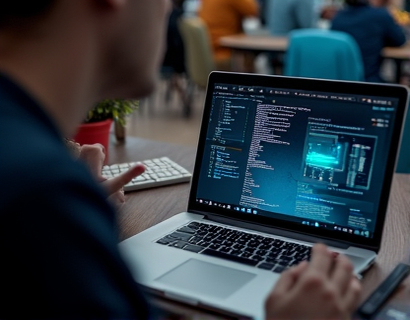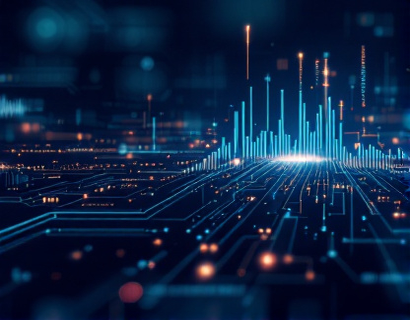Decentralized Productivity: Harnessing AI and Crypto for Next-Gen App Ecosystems
The integration of artificial intelligence (AI) and cryptocurrency is paving the way for a new era of decentralized productivity tools and app ecosystems. This transformative convergence promises to revolutionize how we approach tasks, collaboration, and efficiency in the digital realm. By leveraging the strengths of both technologies, developers are creating innovative solutions that not only streamline workflows but also enhance user experience and security. This article delves into the intricacies of this merging landscape, exploring how decentralized app ecosystems are reshaping the future of productivity for tech enthusiasts and professionals alike.
The foundation of this new paradigm lies in the decentralized nature of blockchain technology. Traditional app ecosystems are centralized, with a single entity controlling the infrastructure, data, and user interactions. In contrast, decentralized app ecosystems distribute these elements across a network of nodes, ensuring no single point of failure and enhancing transparency and security. This shift is crucial for building trust and fostering a more open and collaborative digital environment.
AI, with its ability to process vast amounts of data and learn from patterns, complements the decentralized model by providing intelligent, adaptive, and personalized user experiences. When combined, AI and blockchain can create apps that are not only more efficient but also more secure and user-centric. For instance, AI-driven algorithms can optimize resource allocation within a decentralized network, ensuring that computational tasks are distributed efficiently and that the network operates at peak performance.
One of the key benefits of decentralized productivity tools is enhanced data sovereignty. Users retain control over their data, deciding who can access it and for what purpose. This is a significant shift from the current model where data is often centralized and controlled by third parties, leading to privacy concerns and potential misuse. With decentralized apps, users can securely share and collaborate on data without compromising their privacy, thanks to advanced cryptographic techniques and smart contracts.
Smart contracts, self-executing contracts with the terms directly written into code, play a pivotal role in decentralized app ecosystems. They automate and enforce agreements between parties without the need for intermediaries, reducing costs and increasing efficiency. In the context of productivity tools, smart contracts can manage tasks, payments, and access controls, ensuring that all actions are transparent and verifiable. This not only streamlines workflows but also builds trust among users and stakeholders.
AI-enhanced decentralized apps can also offer predictive analytics and intelligent recommendations. By analyzing user behavior and preferences, these apps can suggest optimal workflows, identify potential bottlenecks, and provide actionable insights. For example, a decentralized project management tool could use AI to predict project timelines, allocate resources based on team performance, and alert managers to potential delays, all while ensuring that data remains secure and user-controlled.
The user experience in decentralized app ecosystems is another area where AI and crypto converge to create significant improvements. Traditional apps often suffer from slow load times, frequent downtimes, and limited scalability. Decentralized apps, powered by blockchain, can offer faster and more reliable performance. AI optimizations further enhance this by dynamically adjusting resources and optimizing user interactions. For instance, AI can pre-load frequently used features, reduce latency, and personalize interfaces to match individual user preferences, creating a seamless and intuitive experience.
Security is a paramount concern in any digital ecosystem, and the combination of AI and blockchain addresses many of the vulnerabilities present in centralized systems. AI can detect and mitigate threats in real-time, identifying anomalous behavior and potential security breaches before they occur. Blockchain's inherent security features, such as immutability and cryptographic hashing, ensure that once data is recorded, it cannot be altered or deleted. This dual-layer security approach provides a robust defense against cyber threats, making decentralized productivity tools highly attractive for businesses and individuals alike.
Another significant advantage of decentralized app ecosystems is their scalability and resilience. Traditional centralized systems often struggle with scaling, as adding more users or data can strain the infrastructure and lead to performance degradation. Decentralized networks, on the other hand, can scale horizontally by adding more nodes, distributing the load and maintaining performance. AI further enhances this by optimizing the network's resource allocation and ensuring that the system remains efficient and responsive, even under heavy usage.
For tech enthusiasts and professionals, the potential of decentralized productivity tools is immense. Developers can build on open-source blockchain platforms, leveraging AI libraries and frameworks to create innovative applications. The community-driven nature of decentralized projects fosters collaboration and rapid innovation, allowing for continuous improvement and adaptation to emerging needs. This ecosystem encourages experimentation and the development of niche solutions that address specific pain points in productivity and collaboration.
Moreover, the economic model of decentralized app ecosystems, often based on native tokens and decentralized finance (DeFi) principles, provides new opportunities for monetization and incentivization. Users can earn tokens by contributing to the network, such as by providing computational power, validating transactions, or participating in governance. These tokens can then be used within the ecosystem or traded, creating a self-sustaining and user-driven economy. AI can optimize these economic mechanisms, ensuring fair distribution and efficient resource allocation.
In terms of practical applications, decentralized productivity tools are already making waves in various industries. For instance, decentralized collaboration platforms can facilitate global teams by providing secure, transparent, and efficient communication and file-sharing mechanisms. AI-driven analytics tools can help businesses make data-informed decisions while ensuring data privacy and compliance. Decentralized finance (DeFi) integrations can streamline financial transactions, offering low-cost and fast cross-border payments and lending services.
The future of decentralized app ecosystems is bright, with ongoing advancements in AI and blockchain technology continuing to push the boundaries of what is possible. As more developers and organizations adopt these technologies, we can expect to see a proliferation of innovative solutions that enhance productivity, security, and user experience. The convergence of AI and crypto is not just a trend but a fundamental shift in how we build and interact with digital tools, promising a more decentralized, intelligent, and empowering future for all users.





